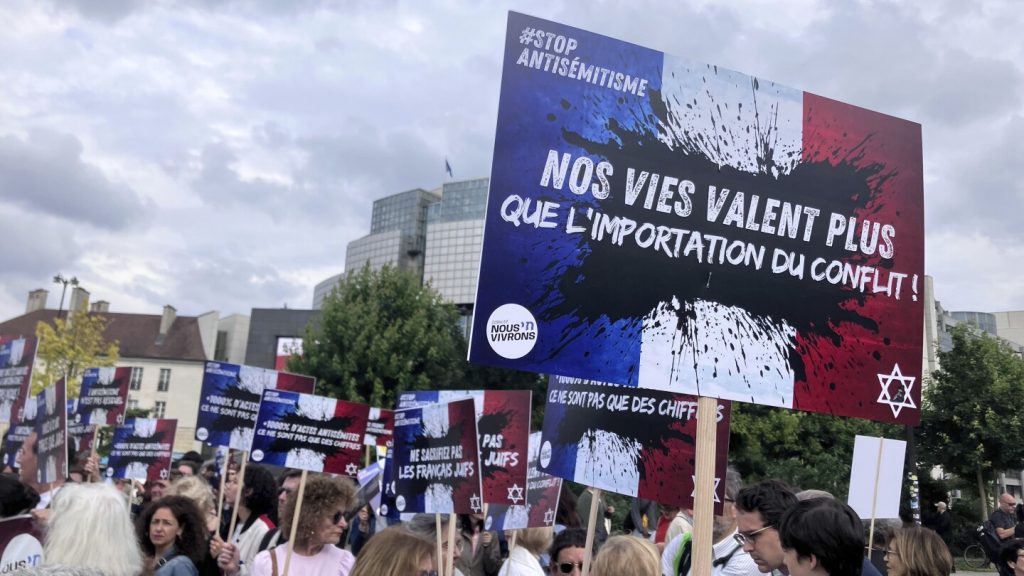The rape of a 12-year-old Jewish girl in a suspected antisemitic attack in France has sparked widespread shock and condemnation, bringing concerns about antisemitism to the forefront of the country’s legislative elections. The National Rally party, a far-right anti-immigration group, is leading in pre-election polling and has a real chance of forming a government for the first time since the Nazi occupation. Amid accusations of antisemitism, the far-left has also come under scrutiny for its response to the Israel-Hamas conflict. The attack on the young girl in Paris suburb has raised concerns about rising antisemitic acts in France, prompting hundreds of people to protest against antisemitism.
France, with the largest Jewish population in Europe, has a history of collaboration with Nazis during World War II, which continues to affect its current struggles with antisemitism. The country also has the largest Muslim population in western Europe, and anti-Muslim acts have been on the rise in recent years. Politicians from various sides have responded to the attack, with the Prime Minister describing it as a crime committed because the victim was Jewish, and the President calling for discussions on racism and antisemitism in schools. The leader of the National Rally party vowed to fight antisemitism if elected, while also accusing the far-left of stigmatizing Jews and instrumentalizing the Israel-Hamas conflict.
Calls for a united front against the far right and antisemitism have intensified in the wake of the alleged rape, with many acknowledging the presence of antisemitism on the left as well. Tensions are running high as France approaches its legislative elections, with concerns about the far-right potentially coming to power. More than 180,000 people participated in a march against rising antisemitism in France following Israel’s conflict with Hamas in Gaza. The National Rally party, despite efforts to distance itself from its antisemitic past, continues to face criticism over its history and associations. The war in the Middle East has reignited debates about the definition of antisemitism and the fine line between criticism of Israel and anti-Jewish hate speech.
Statistics show a significant increase in antisemitic acts in France this year, prompting further discussions about the nature of antisemitism and its connection to criticism of Israel. The Israeli government often accuses its critics of antisemitism, while opponents argue that the term is used to silence legitimate criticism of Israeli policies. The ongoing conflict in the Middle East has polarized opinions and sparked debates about the boundaries of free speech and the right to criticize government actions. The situation has also highlighted the delicate balance between addressing antisemitism and ensuring freedom of expression. As France grapples with these complex issues, the upcoming legislative elections are likely to be influenced by the ongoing discussions surrounding antisemitism and the Israel-Hamas conflict.


